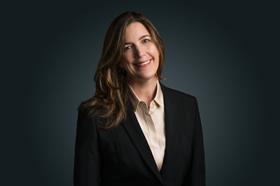Close to a century of progress has not delivered full gender equality at the top of the legal profession. We need to keep going, says Catherine Calder.

A hundred years after (some) British women gained the vote, the 2018 International Women’s Day celebrates the social, economic, cultural and political achievements of women. Importantly, it is also a call to action for accelerating gender parity, an issue that the legal profession takes very seriously.
According to data collected in August 2017 by the Solicitors Regulation Authority, women make up 48% of all lawyers in law firms and constitute three quarters of the workforce in terms of other staff.
Women hold markedly fewer senior positions, however, with just 33% of partners being women. Statistics from the Bar Standards Board for the same year show that 6,022 of the 16,435 practising barristers – or almost 37% – are women, while just over 15% of QCs are female (254 out of a total of 1665). Although we now have a woman in the most senior role in the Supreme Court, the judicial diversity figures from April 2017 give the percentage of female judges as only 24% in the Court of Appeal and 22% in the High Court.
At first glance these figures are dispiriting, but the proportion of women in senior positions at solicitors’ firms and barristers’ chambers is growing, as those in management on both sides of the profession work to improve the retention and promotion of women. As Christina Blacklaws, vice president of the Law Society, says today, ‘justice, fairness and the rule of law are what drew most of us to the legal profession’.
Announcing the results of the Law Society’s Women in the Law survey, in which nearly 8000 people participated, Blacklaws notes that ‘unconscious bias in the legal profession is the most commonly identified barrier to career progression for women’. Tackling this, as well as providing mentoring and flexible working (something which of course benefits men as well as women) is key.
One way of addressing unconscious bias is to showcase successful female lawyers, which also inspires younger women to lean in, as Sheryl Sandberg would put it, and to aim for the top.
The importance of role models cannot be overestimated. In the words of Bridget Dolan QC at my own set, which has seen four female silks sworn in since February 2016: ‘We know that our appointments will encourage the other women in the set to aim high. Our first female QC in Chambers is now on the High Court Bench, and the four recent appointments have certainly changed the profile at the top of chambers, with 20% of our silks now women.’
Reportedly this puts my chambers, Serjeants’ Inn, in the top ten chambers for the number of female silks, but we aspire to improve this significantly. Although the four female QCs at Serjeants’ Inn have followed disparate paths to silk and work in different areas of law, what they have in common is that they all have children; Katie Gollop QC acknowledges how crucial the support of the clerking team has been to ensure that career success has been compatible with family life.
The profession’s progress on equality is being documented in the First Hundred Years project run by Spark 21, a charity founded to celebrate, inform and inspire women in the profession.
Supported by the Law Society and the Bar Council, the project charts the journey of women in law since 1919 when the passing of the Sex Disqualification (Removal) Act enabled women to enter the profession for the first time. Its numerous events and initiatives include an exhibition of 100 films to be shown at the British Library in 2019 that tells the story of women in law and highlight role models for the future – celebrating the legacy of extraordinary women such as Helena Normanton and Rose Heilbron, and recognising the achievements of Baroness Hale, Baroness Butler-Sloss, Lady Justice Thirlwall, Baroness Kennedy, Dame Fiona Woolf and other leading lights of the law. As a trustee of Spark 21, I hope and believe that my daughter’s generation will take for granted gender parity just as my generation takes for granted women’s right to vote.
Catherine Calder is joint chief executive of Serjeants’ Inn Chambers which is a founding partner of the First 100 Years campaign. She is also a trustee of charity Spark 21.



























3 Readers' comments